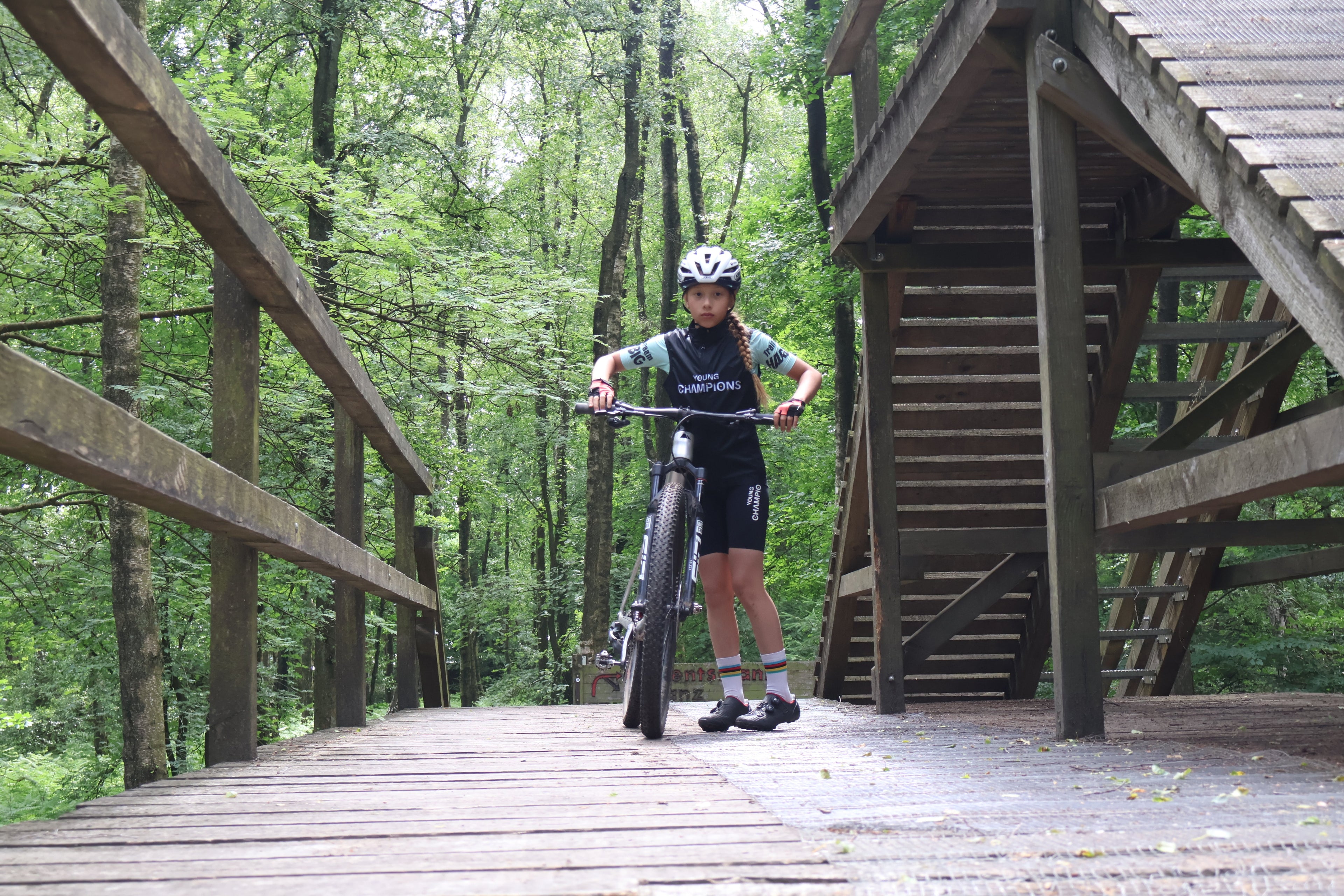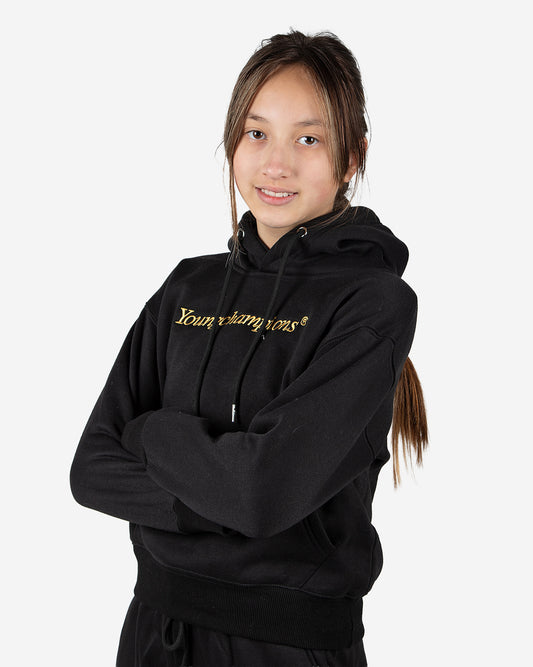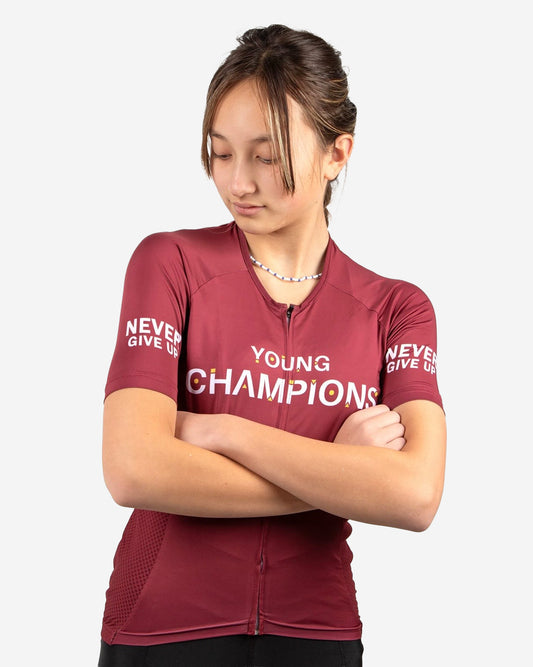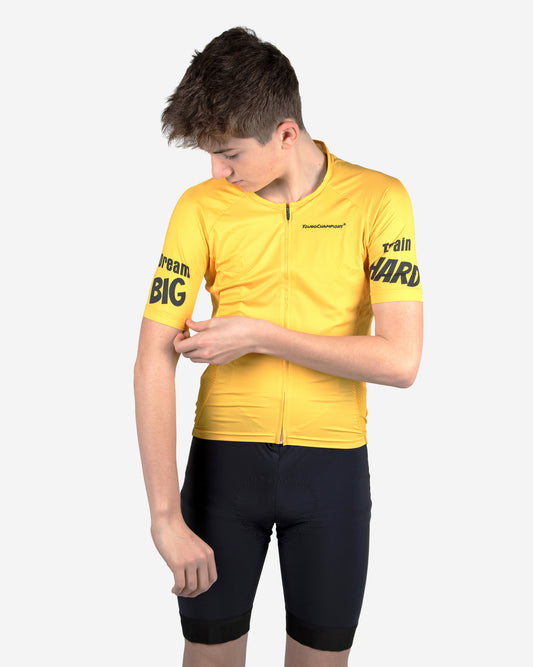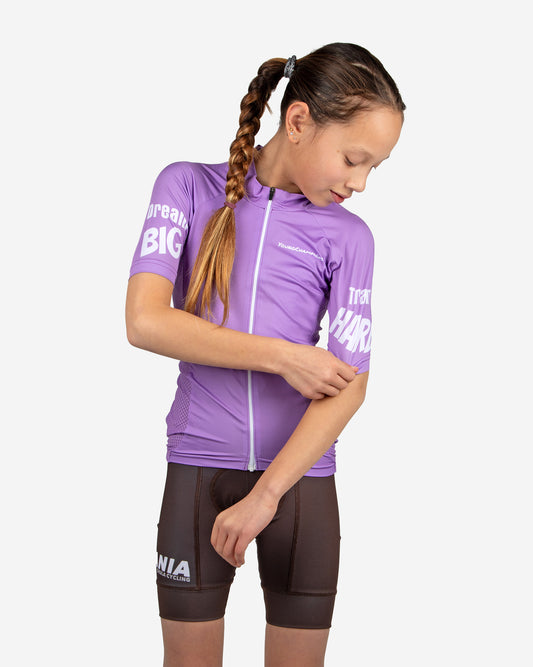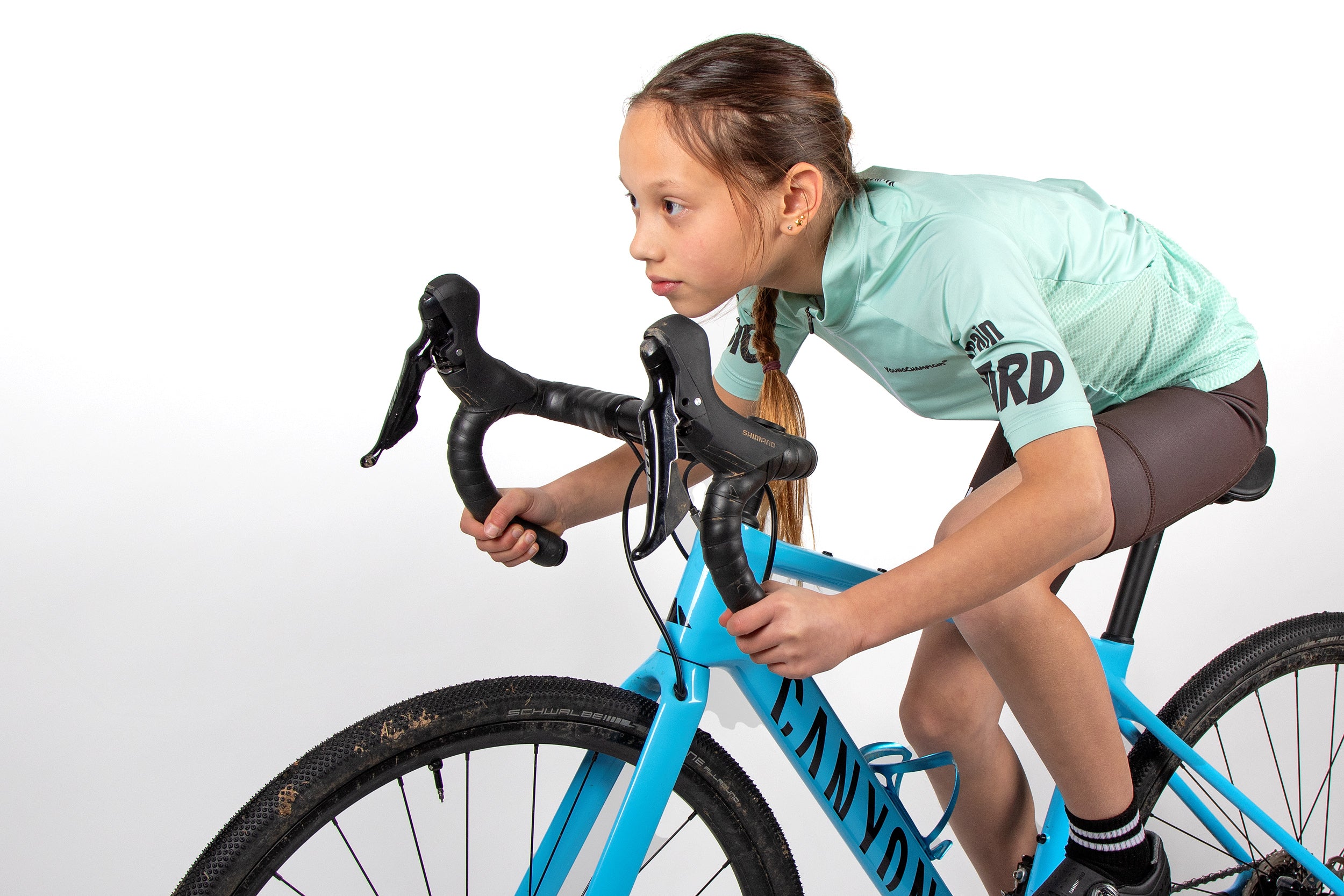The foundation starts at your club
Lately, we’ve been getting more and more questions about training. Understandable, because cycling and mountain biking are wonderful sports where young talents can find a lot of fun and challenge. But where do you actually start?
The foundation is always at your club. That’s where kids train under the guidance of enthusiastic volunteers or certified coaches. They’re there week after week with their knowledge, experience, and dedication to support young riders. The most important principle? Enjoyment.
There needs to be a connection between the coach and the young rider, room to make mistakes, to grow, to laugh and to learn. Because only when a child feels comfortable can they truly develop. For many kids, it stops there: riding for fun, making friends, and enjoying themselves. And that’s perfectly fine.
But there’s also a group that wants more. They have a hunger for challenge. They suddenly start riding extra laps on their own, watch technique videos on YouTube, or ask if they can train more often. And there’s absolutely nothing wrong with that – it’s actually wonderful to see.
At that point, things change. Wanting more also means doing more. And that requires effort—not only from the child but also from the parents. Because besides the club training sessions, there’s often an extra ride on the weekend, a midweek session on the road bike, a hill training in the dunes, and so on. As a parent, you suddenly become coach, chauffeur, caretaker, and motivator all in one.
And that’s not always easy. Cycling and mountain biking are time-consuming sports. Especially if you start racing: early mornings, traveling all over the country, coming home late, eating well, drinking well. At a young age, that already requires quite a commitment. And it’s essential to keep the balance: enjoyment and reward for the effort.
What we keep emphasizing—and what is already nicely integrated in the Fit & Fun program of Youngchampions® —is that serious training is not just about spending hours on the bike. Core training, strength, and coordination are essential. Not only to perform better but also to move stronger and healthier in everyday life—think of all those hours sitting at a desk or behind a screen. Keeping your body balanced prevents injuries and ensures good posture.
🕒 Guidelines for training load by age
A frequently asked question is: How much should a child train? The KNWU Talent Vision 2030 provides clear guidelines to prevent overloading, tailored to age and development phase:
| Development phase | Approximate age | Training hours/week | Sessions/week | Longest session | Max yearly hours |
|---|---|---|---|---|---|
| Basic phase | Up to ~12 years | Max 6 hours | Up to 5 | ~50 minutes | Up to 240 hours |
| Build-up phase 1 | ~12–14 years | 6–8 hours | 5–6 | 1–1.5 hours | Up to 300 hours |
| Build-up phase 2 | ~14–16 years | 8–10 hours | 6–7 | 1.5–2 hours | Up to 400 hours |
| Specialization | ~16–18 years | 10–12 hours | 6–8 | 2–2.5 hours | Up to 500 hours |
| Performance phase | ~18 years and older | 12–15+ hours | 7–9 | 2.5–3 hours | 700+ hours |
It’s important to remember these are not strict rules. Every child develops differently. That’s why the KNWU also advises looking at biological age (growth development) instead of calendar age. There’s even a handy tool available at knwu.nl/bepaal-fase.
Small steps, big value
What we want to pass on to young riders is this: think in small steps. Of course, dreaming of becoming the next Mathieu van der Poel or Puck Pieterse is inspiring. But also realize that the road is long, tough, and only for a few. And that’s totally okay.
Your body changes a lot during your youth. Where you can easily ride at the front now, that might be very different in two years—or the other way around. Every body develops at its own pace. Don’t compare yourself to others. Some grow early, others late. Some are technically strong, others physically strong. Focus on your own path.
Celebrate the small victories: a climb you couldn’t finish before, a better corner, completing a training without stopping. That’s where your growth is.
And as fun as it is to be famous or win a medal: fame is never a good motivator. It’s temporary. If that’s the only reason you do it, you won’t last. The passion must come from the heart.
Cycling also teaches you other things: being on time, preparing your gear, managing your nutrition, dealing with disappointments, motivating yourself when things get tough. You learn to take responsibility for your sport and yourself. Those are lessons that last a lifetime.
And don’t forget: although cycling is often an individual sport, the social aspect is just as important. Training together, helping each other, going to races together—the team spirit in the club is often why young riders stay. The friendships formed on the bike are often just as valuable as the results.
In conclusion
To all parents wondering how to support their young rider: start at the club. Make sure there’s fun. Encourage small steps. And if the desire to do more arises, be there—not as pressure, but as support. After all, the best rides are the ones you make together.


